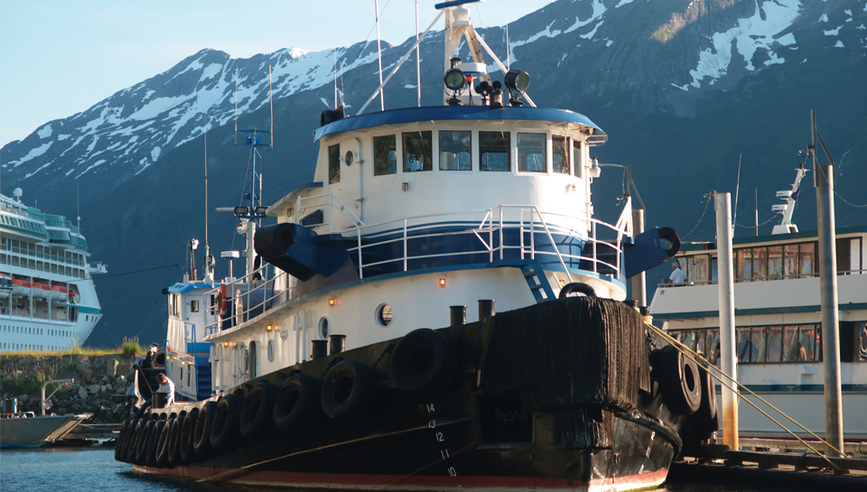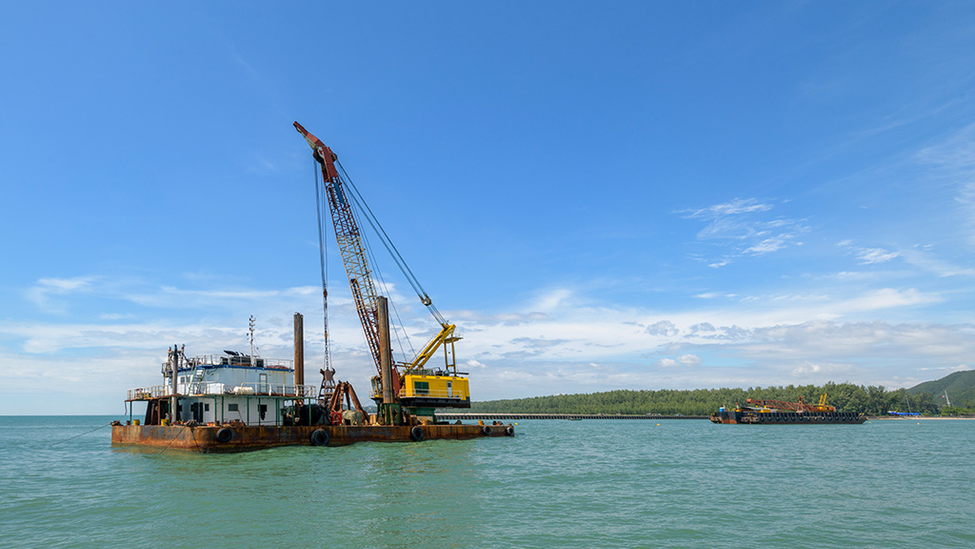Preparing for an Extended Lay-Up: Protecting Vessels from Loss


The extended lay-up of a vessel can significantly change the risks that a vessel owner faces and can increase the possibility of loss. Developing a plan that addresses vessel lay-up location, preparation and reactivation can help reduce the potential for loss.
Plan
Vessel lay-up plans should address unique local conditions, including weather, tidal range and hurricanes, as well as specialized equipment and machinery aboard. The plan should establish procedures aimed at maintaining the security, safety and condition of the vessel through periods of inactivity.
Widespread inactivity or extended lay-ups may impact the availability of vessel storage locations, labor, fuel and parts. Update existing plans for hurricanes and similar events to address potential shortages. Unexpected and time-consuming issues may be encountered during post-lay-up reactivation. If reactivation in advance of a storm is anticipated, ensure the revised plan allots adequate time for reactivation and accounts for possible delays.
Vessel location
If the vessel can be hauled and stored ashore, this is the ideal “berth” for a vessel being laid up. Lay-up ashore eliminates the possibility of a vessel flooding and/or sinking. It also reduces the exposure of the hull to the corrosive effects of salt water. For vessels being laid up ashore:
- Consider what the vessel will be resting on while ashore.
- Any cradles, jack stands, blocking, etc., should be in good condition and of adequate size and construction to support the vessel. If jack stands are being utilized, safety chains should be used to connect them.
- Maintain fire lanes at the location where the vessel is being stored to ensure that emergency services can properly respond in the event of an incident.
- Remove stairs, ladders, etc., to help prevent unauthorized entry. Post signage to help restrict access.
Vessels remaining in the water are more exposed to loss, such as flooding, sinking, breakaway, etc.
- Ensure the berth is of sufficient depth and provides adequate protection from the prevailing wind, currents, wave action, etc.
- Carefully evaluate locations with a large tidal range.
- Be sure the berth and the associated mooring system are adequate for the vessel and are in good condition.
- Cleats, bollards, etc., should be inspected.
- Mooring lines should be of appropriate size, in good condition, and rigged with chafing gear, as needed.
Preparation of the vessel
Prior to being placed into lay-up, all vessels should be properly prepared.
- Keep a detailed list of what was done to prepare the vessel for lay-up, as this can be beneficial when returning the vessel to operation. This could include Lockout/Tagout lists, labeling, etc.
- Remove any items that may be attractive to thieves (electronics, tools, etc.), pyrotechnics, food, etc., from the vessel. If removal is not feasible, any remaining items should not be stored within sight of the exterior of the vessel.
- Remove any flammable liquids, propane tanks, portable fuel tanks, etc., from the vessel.
- Any external openings, such as hatches, doors, windows, etc., should be closed and locked.
- Top off fuel tanks and add fuel stabilizers.
- Machinery and systems should be prepared for lay-up and/or winterized as per manufacturers’ recommendations. Any deck machinery, cranes, etc., should be thoroughly lubricated and greased. Any booms, derricks, etc., should be lowered and stored in their cradles.
- Bilges should be cleaned and dried. No debris should be present, as it can interfere with the operation of the bilge pumps.
- Potable water tanks, ballast tanks, voids, etc., should be dewatered and dried. If not possible, consider adding corrosion inhibitors or cathodic protection to the tanks.
- Keep interior doors, lockers, etc., open to allow the interior air to circulate to help prevent mold and mildew buildup. Consider using a dehumidifier to control the humidity within the vessel. Cushions, mattresses, etc., are prone to mold and mildew damage.
- Ventilators, air intakes, exhaust openings, etc., should be closed.
- If the electrical system is to be secured, any batteries should be disconnected and ideally removed from the vessel. Avoid disconnecting batteries if the vessel is to remain in the water, as this would preclude the operation of any systems that may need to remain energized during the lay-up, such as bilge pumps.
- Emergency contact information should be posted and visible. A minimum of two contacts is recommended.
- If any maintenance, repair, upgrades, etc., are going to be conducted aboard the vessel during lay-up, all the firefighting equipment and fire detection system is to remain aboard and properly maintained/inspected.
Additionally, for vessels that are to remain in the water:
- Bilge pumps, float switches, piping, etc., should be inspected and tested.
- Shore power should be connected as this ensures that power is available for any systems or equipment that is to remain energized.
- Remove gangway to help prevent unauthorized entry and post signage to help restrict access.
- All thru-hull fittings should be closed and the stuffing box adjusted to stop any dripping.
- If the berth is prone to ice accumulation, use appropriate de-icing equipment to help prevent possible hull damage and breakaways.
- At least weekly inspections of the vessel should occur. The inspections should include, at a minimum, shore power, moorings, vessel drafts and bilge condition.
- Consider installing a remote vessel monitoring system. The notice of a power failure, excessive bilge pumping, high bilge levels, etc., can be critical in helping avoid a loss. This is especially pertinent in colder climates where heaters may be used to keep the machinery spaces from freezing.
Reactivation of vessels
When it is time to return the vessel to operation:
- Depending on lay-up duration, the vessel hull should be inspected for:
- Condition of vessel structural members, plating and coatings.
- Deterioration of sacrificial anodes.
- Marine growth on hull and within hull penetrations.
- Atmospheric conditions might change during extended lay-ups. Consult and follow your confined space entry program.
- Electrical systems should be energized in a systematic approach to include inspection and testing of each circuit and the associated equipment.
- All lifesaving and firefighting equipment should be inspected and certified as required.
- Conduct operational tests of all systems and equipment dockside followed by sea trials.
- Review and renew statutory and regulatory certificates as needed.
Summary
Vessel lay-ups pose new and challenging risks that, if left unmanaged, can result in significant loss. To help prevent loss, develop a plan that identifies vessel storage controls and establishes proper lay-up preparation and reactivation procedures.



